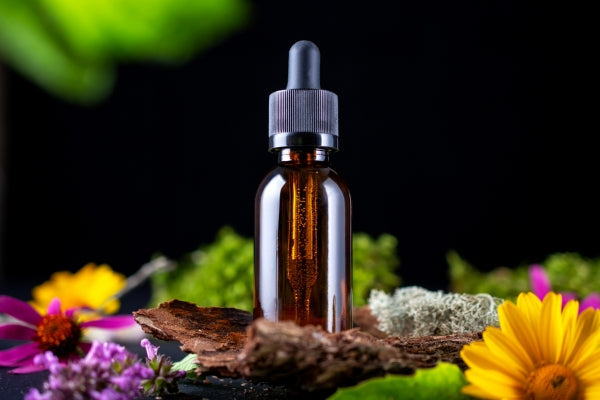Essential oils have been used for centuries for their therapeutic properties, aromatic benefits, and ability to enhance overall well-being. Whether you’re new to essential oils or looking to expand your collection, choosing the best essential oil can be daunting given the sheer variety available. This detailed guide will help you understand everything about essential oils, from their benefits and uses to how to choose the right one for your needs.
What Are Essential Oils?
Essential oils are concentrated plant extracts obtained through methods like steam distillation or cold pressing. They capture the plant’s scent and beneficial compounds, making them highly potent and effective in various applications such as aromatherapy, skincare, and natural remedies.
How Are Essential Oils Made?
-
Steam Distillation:
-
Plant materials are steamed, causing the oils to evaporate. The vapor is then condensed and collected.
-
-
Cold Pressing:
-
Commonly used for citrus oils, this method involves pressing the plant material to extract the oils.
-
-
Solvent Extraction:
-
Used for delicate flowers like jasmine, this method uses solvents to extract the oils, which are then separated.
-
Benefits of Essential Oils
1. Aromatherapy
Essential oils are widely used in aromatherapy to promote relaxation, reduce stress, and enhance mood. Scents like lavender and chamomile are known to calm the mind, while citrus oils like orange and lemon uplift and energize.
2. Skin and Hair Care
Many essential oils have antibacterial, antifungal, and anti-inflammatory properties, making them ideal for skincare routines. For instance:
-
Tea Tree Oil: Acne treatment and soothing skin irritations.
-
Rosehip Oil: Anti-aging and hydration.
-
Peppermint Oil: Scalp stimulation and dandruff prevention.
3. Natural Remedies
Essential oils can help alleviate various health concerns:
-
Eucalyptus Oil: Relieves respiratory issues.
-
Ginger Oil: Eases nausea and digestive discomfort.
-
Clove Oil: Provides pain relief, especially for toothaches.
4. Household Applications
Essential oils can replace chemical-laden cleaning products. Lemon, tea tree, and lavender oils are excellent for natural cleaning and freshening up spaces.
How to Choose the Best Essential Oil
1. Purity
Look for oils labeled as 100% pure, without fillers or synthetic additives. Reputable brands provide third-party testing certificates to confirm purity.
2. Source
The quality of essential oils depends heavily on the source of the plants. Opt for oils sourced from their native regions, as they tend to be more potent and authentic.
3. Extraction Method
Choose oils extracted using natural methods like steam distillation or cold pressing to ensure they retain their therapeutic properties.
4. Packaging
High-quality essential oils are stored in dark glass bottles to protect them from light and oxidation.
5. Smell Test
Pure essential oils have a rich, natural aroma. If the scent is overly strong, artificial, or diluted, it’s likely of low quality.
Top Essential Oils and Their Benefits
1. Lavender Essential Oil
-
Uses: Promotes relaxation, improves sleep, and soothes skin.
-
Best For: Stress relief, insomnia, and minor burns or cuts.
2. Peppermint Essential Oil
-
Uses: Boosts energy, relieves headaches, and aids digestion.
-
Best For: Enhancing focus, soothing sore muscles, and freshening breath.
3. Eucalyptus Essential Oil
-
Uses: Clears airways, reduces inflammation, and repels insects.
-
Best For: Respiratory health and natural cleaning.
4. Tea Tree Essential Oil
-
Uses: Antimicrobial properties make it effective against acne and dandruff.
-
Best For: Skincare and scalp health.
5. Frankincense Essential Oil
-
Uses: Enhances meditation, reduces scars, and improves skin elasticity.
-
Best For: Spiritual practices and anti-aging routines.
How to Use Essential Oils Safely
1. Dilution
Always dilute essential oils with a carrier oil like coconut, jojoba, or almond oil before applying them to the skin. The recommended dilution ratio is 2-3 drops of essential oil per teaspoon of carrier oil.
2. Patch Test
Perform a patch test before using a new oil to ensure you’re not allergic. Apply diluted oil to a small area of skin and wait 24 hours for any reaction.
3. Inhalation
Use a diffuser or add a few drops to a bowl of hot water and inhale the steam. Avoid direct inhalation from the bottle for prolonged periods.
4. Avoid Ingestion
Unless under the guidance of a qualified professional, avoid ingesting essential oils as they are highly concentrated and can be toxic.
5. Keep Away From Children and Pets
Some essential oils, like tea tree and peppermint, can be harmful to pets and children. Always use them with caution.
Essential Oil Storage Tips
-
Store oils in a cool, dark place.
-
Keep lids tightly closed to prevent oxidation.
-
Avoid exposure to direct sunlight or high temperatures.
Top Brands for Essential Oils
- Zenful: Best Organic essential oils, mostly from Europe.
-
Young Living: Known for their Seed to Seal quality commitment.
-
doTERRA: Offers a wide range of therapeutic-grade oils.
-
Plant Therapy: Affordable and high-quality essential oils with third-party testing.
-
Edens Garden: Excellent value with pure, undiluted oils.
Conclusion
Choosing the best essential oil requires an understanding of your specific needs and the qualities to look for in a product. Whether you’re looking to relax, boost focus, or enhance your skincare routine, there’s an essential oil perfect for you. By prioritizing purity, source, and proper use, you can fully enjoy the numerous benefits these natural wonders offer.
Ready to explore premium essential oils? Visit Zenful to find the perfect oil for your lifestyle and elevate your well-being today!

Share:
Best aroma diffuser: Everything you need to know
Best aromatherapy oils: A comprehensive guide